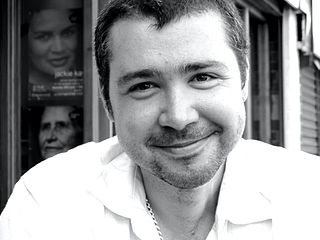A Quote by Eric Ries
Entrepreneurs always pitch their idea as 'the X of Y,' so this is going to be 'the Microsoft of food.' And yet disruptive innovations usually don't have that character. Most of the time, if something seems like a good idea, it probably isn't.
Related Quotes
Companies, in fact, are specifically organized to under-invest in disruptive innovations! This is one reason why we often suggest that companies set up separate teams or groups to commercialize disruptive innovations. When disruptive innovations have to fight with other innovations for resources, they tend to lose out.
The reason why it is so difficult for existing firms to capitalize on disruptive innovations is that their processes and their business model that make them good at the existing business actually make them bad at competing for the disruption. Companies in fact are specifically organized to under-invest in disruptive innovations! This is one reason why we often suggest that companies set up separate teams or groups to commercialize disruptive innovations. When disruptive innovations have to fight with other innovations for resources, they tend to lose out.
I think the very idea of character, of developing not just grit, but empathy and curiosity, emotional intelligence - you know, the things that I want my own daughters to develop - the idea that we're going to get there through rewards and punishments seems completely at odds with the idea of character itself.
I don't feel bound by the ebbs and flows of musical trends, or what's happening with new music in general. I always had a fascination with that sound. It's a mixture of the idea that something could be going wrong along with the idea of bending constrained, Westernized music out of tune. But because I wasn't copying an idea, and it just came from somewhere inside me, it felt like a birth of something that most people didn't understand at the time.
I don't need to feel 100% safe, but I have to feel like there's room for me to go a little bit insane if I'm going to have good ideas. Because a good idea is a new idea and if you start going around like, "I have this new idea!" most people are gonna be like, "I've never heard that before, that sounds fishy."
If a company truly wants to resolve the innovator's dilemma, it does need to be able to create wave after wave of disruptive innovation. And those disruptive innovations will typically grow to the point where they do cause some pain for leading companies. But most disruptive innovations create substantial new growth before they cause that pain.
We're living history all the time, in the papers, in the news, you think about stuff and it goes into your brain and you think about it and it comes out somehow. You have an idea; you've heard a phrase, or you're angry, or something disturbs you, or something seems paradoxical to you, you explore that idea, much like a writer would explore maybe an idea through metaphor. Maybe artists use their vehicle to explore ideas, so I think the things that interest me are the kind of idea of continuous change and how nothing stays the same and it's always disintegrating into something more.
I have one very basic rule when it comes to "good ideas". A good idea is not an idea that solves a problem cleanly. A good idea is an idea that solves several things at the same time. The mark of good coding is not that the program does what you want, it's that it also does something that you didn't start out wanting.































